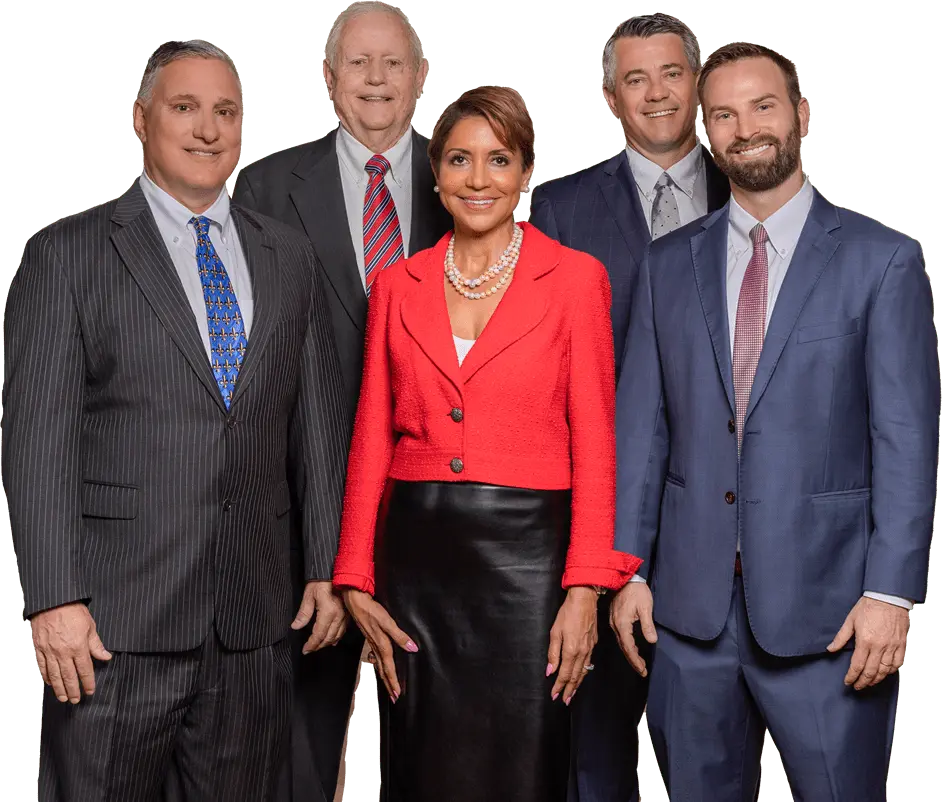
Partner at Charbonnet Law Firm LLC
Practice Areas: Car Accident, Personal Injury

Tourists flock to New Orleans and Metairie for the vibrant culture, live music, and world-famous food. But when an accident happens during a visit, the experience quickly turns into a confusing legal and insurance challenge.
Visitors often face unfamiliar state laws, short filing deadlines, and questions about how their own insurance applies while traveling. This guide breaks down the essentials every tourist should know, using Louisiana-specific rules and real-world examples.
Louisiana follows an at-fault insurance system, meaning the driver who causes an accident is financially responsible for damages. Injured tourists usually pursue claims against the negligent driver’s liability insurance and not their own unless supplemental coverage applies.
“Injured tourists typically pursue claims against the negligent driver’s liability insurance, not through their own insurer unless supplemental coverage applies.”
Comparative fault is another factor. Currently, Louisiana allows recovery, even if you are primarily at fault, with your award reduced by your percentage of fault. But starting January 1, 2026, the state will shift to a modified 51% bar. At that point, tourists discovered that if more than 50% of the fault lies with them, they cannot recover damages.
Tourists from no-fault states often face added confusion. Even if their home insurance provides personal injury protection (PIP), Louisiana law governs local claims, and the case will proceed under Louisiana’s at-fault system.
Each state sets filing deadlines that are called the statutes of limitations. Louisiana recently made a significant change. For accidents occurring on or after July 1, 2024, Louisiana extended its statute of limitations for most personal injury claims to two years. Incidents before that date generally remain subject to a one-year limit.
This means if a tourist is injured today, they generally have two years to file. But if the accident occurred before July 2024, the old one-year deadline applies. Medical malpractice claims remain subject to a one-year statute of limitations with limited exceptions.
Missing these deadlines usually means losing the right to compensation. This makes timing crucial for visitors who return home soon after their trip.

While traveling, tourists often rely on rental cars, rideshares, or their own auto insurance. Rental car companies sell loss damage waivers (LDW/CDW) and supplemental liability protection (SLP). These options may reduce out-of-pocket costs but usually carry exclusions.
Tourists’ personal auto policies from home states may extend to Louisiana, but coverage limits vary. Credit card rental benefits sometimes act as secondary coverage, but many exclude liability for injuries.
Uninsured and underinsured motorist (UM/UIM) coverage also plays a role. If the at-fault driver in Louisiana is uninsured, UM/UIM from a tourist’s policy may step in. Coverage layers can be complex, and gaps often appear when tourists assume one policy covers everything.
Injured tourists face unique legal hurdles in Louisiana. Lawsuits must be filed in Louisiana courts, even if the tourist lives elsewhere. Venue and jurisdiction rules require claims to be filed where the accident happened or where the defendant lives.
Evidence collection can also be difficult once the tourist leaves. Police reports, medical records, and photographs from the scene are critical. Telehealth helps, but insurers may still question delays or incomplete documentation.
Working with a Louisiana law firm ensures that procedural steps are handled locally, reducing stress for visitors managing the aftermath from another state.
Not all tourist injuries involve vehicles. Hotels, vacation rentals, and tourist attractions must keep their premises reasonably safe. Hazards like broken stairs, poor lighting, or wet floors can lead to serious injuries.
Accidents in crowded areas such as the French Quarter raise additional challenges. Tourists may not know to report the incident to property managers immediately. Without timely notice and documentation, property owners may dispute liability.
Slip-and-fall cases and injuries at vacation rentals, like Airbnbs, follow Louisiana premises liability standards. Tourists should report the incident, seek medical care, and keep copies of all records.

New Orleans’ nightlife is legendary, but alcohol-related accidents pose serious risks. Tourists injured by drunk drivers may wonder if bars or hosts share responsibility. In Louisiana, dram shop laws are incredibly narrow.
Louisiana’s dram shop laws are among the narrowest in the country, shielding most bars and hosts from liability except in cases of serving alcohol to minors or forced intoxication.
This differs from many other states, where bars can be held accountable for overserving their patrons. In Louisiana, liability almost always rests with the drunk driver, unless the specific exceptions apply.
|
Type of Claim |
Accidents Before July 1, 2024 | Accidents On/After July 1, 2024 |
Notes |
| General Personal Injury | 1 year | 2 years | Law changed mid-2024 |
| Medical Malpractice | 1 year (limited exceptions) | 1 year | No change |
| Property Damage | 1 year | 2 years | Matches personal injury timeline |
Louisiana applies at-fault rules, but your home-state PIP benefits may still provide limited coverage.
Yes. Lawsuits must be filed in Louisiana courts, and deadlines apply, but remote handling of paperwork and records is possible.
No. LDW/CDW often excludes certain damages. Credit card rental benefits are usually secondary and may not cover personal injury.
Your UM coverage or supplemental rental insurance may apply, depending on your policies.
Yes, if unsafe conditions or negligence caused the injury. Prompt reporting and documentation increase the strength of a claim.
In Louisiana, the drunk driver is primarily liable. Bars or hosts are rarely responsible unless they serve alcohol to a minor.
Injured tourists face an unfamiliar legal landscape in Louisiana. From strict filing deadlines to layered insurance coverage, each step requires careful attention. Knowing the at-fault system, upcoming changes in comparative fault, and limits of dram shop liability helps visitors protect their rights.
Charbonnet Law Firm, LLC, with its team of experienced car accident attorneys, understands the unique challenges tourists encounter after accidents in New Orleans and Metairie. For anyone injured while visiting Louisiana, the firm guides them through insurance issues and legal processes, ensuring that visitors can focus on recovery while their case is handled locally. Schedule your free consultation today.

With over 50 years of legal experience serving families in the New Orleans area and surrounding Louisiana communities, our firm takes pride in providing clients with personalized legal services tailored to individual needs.